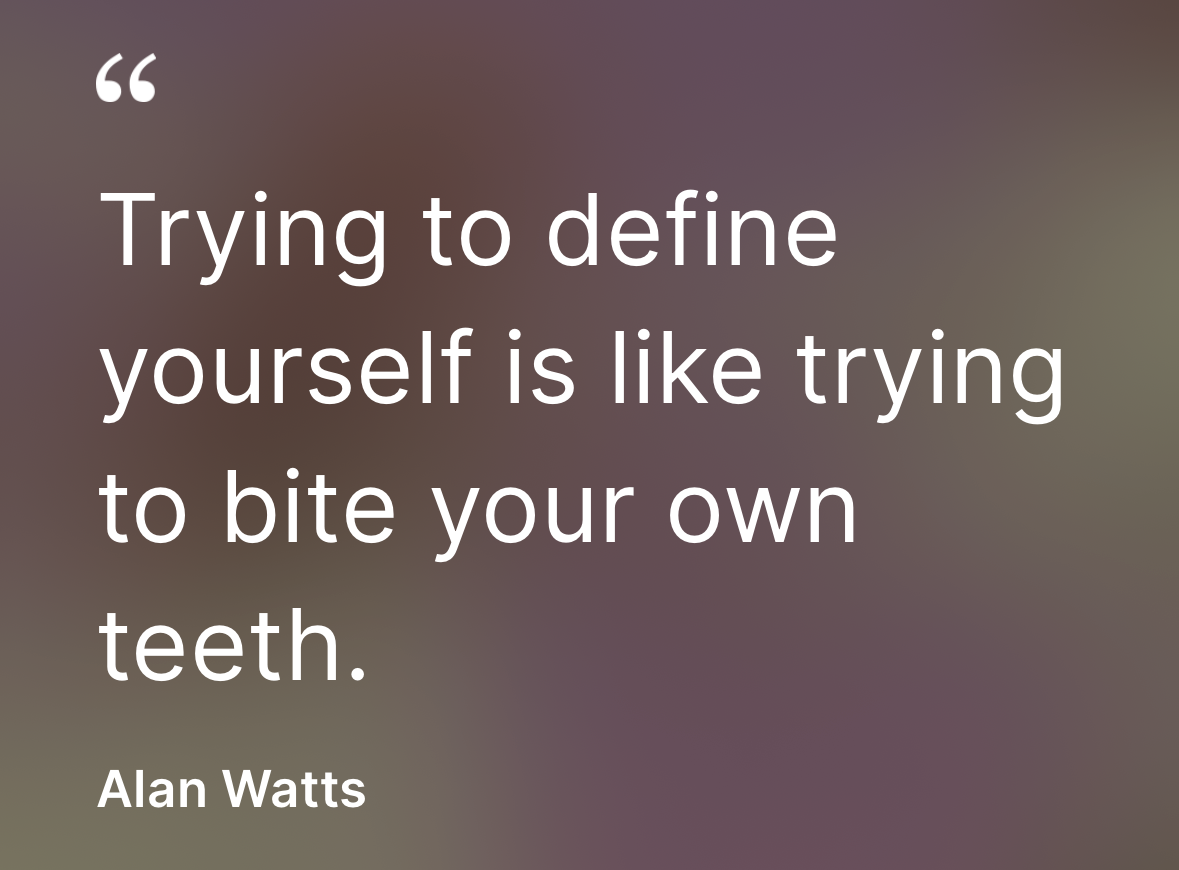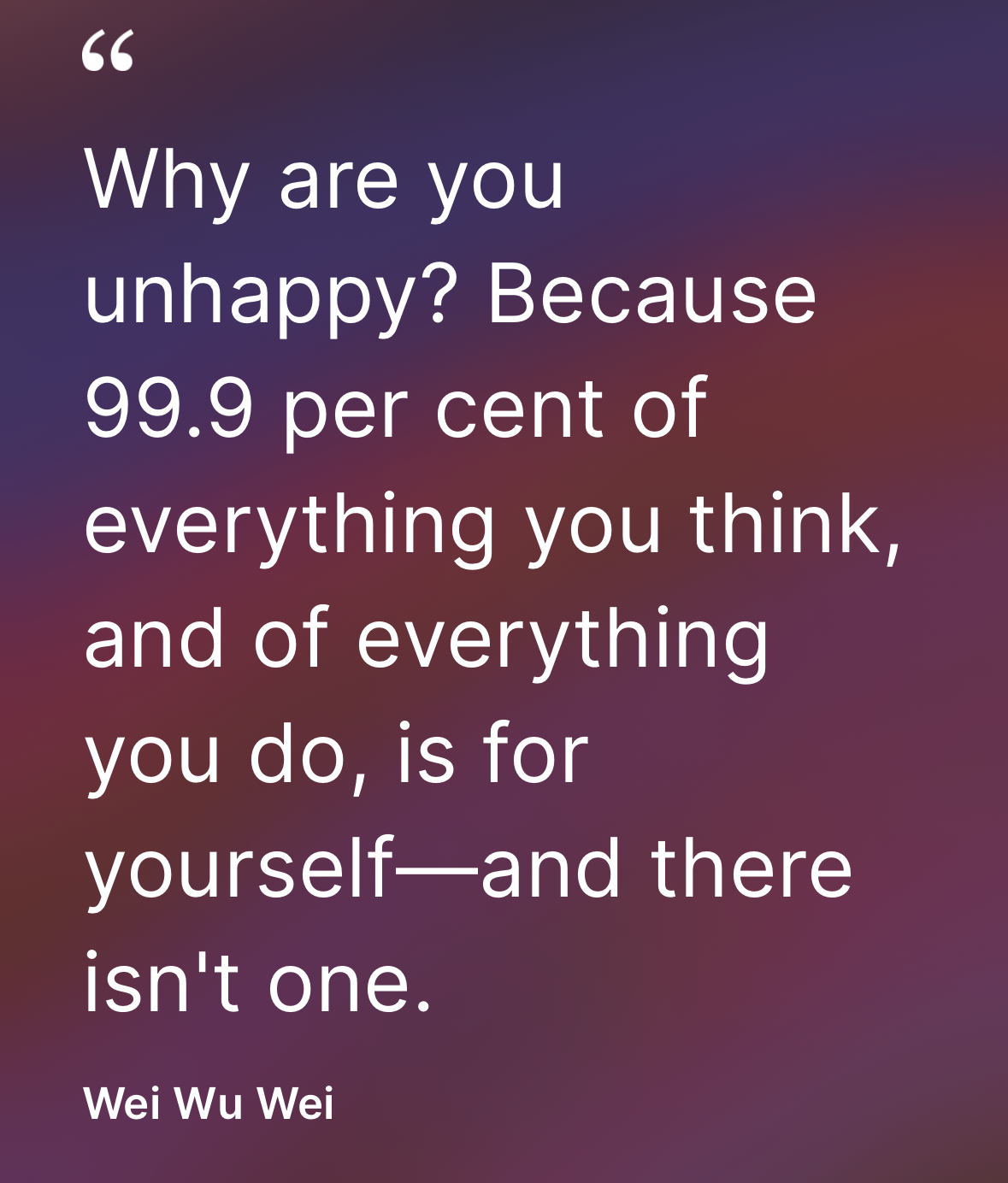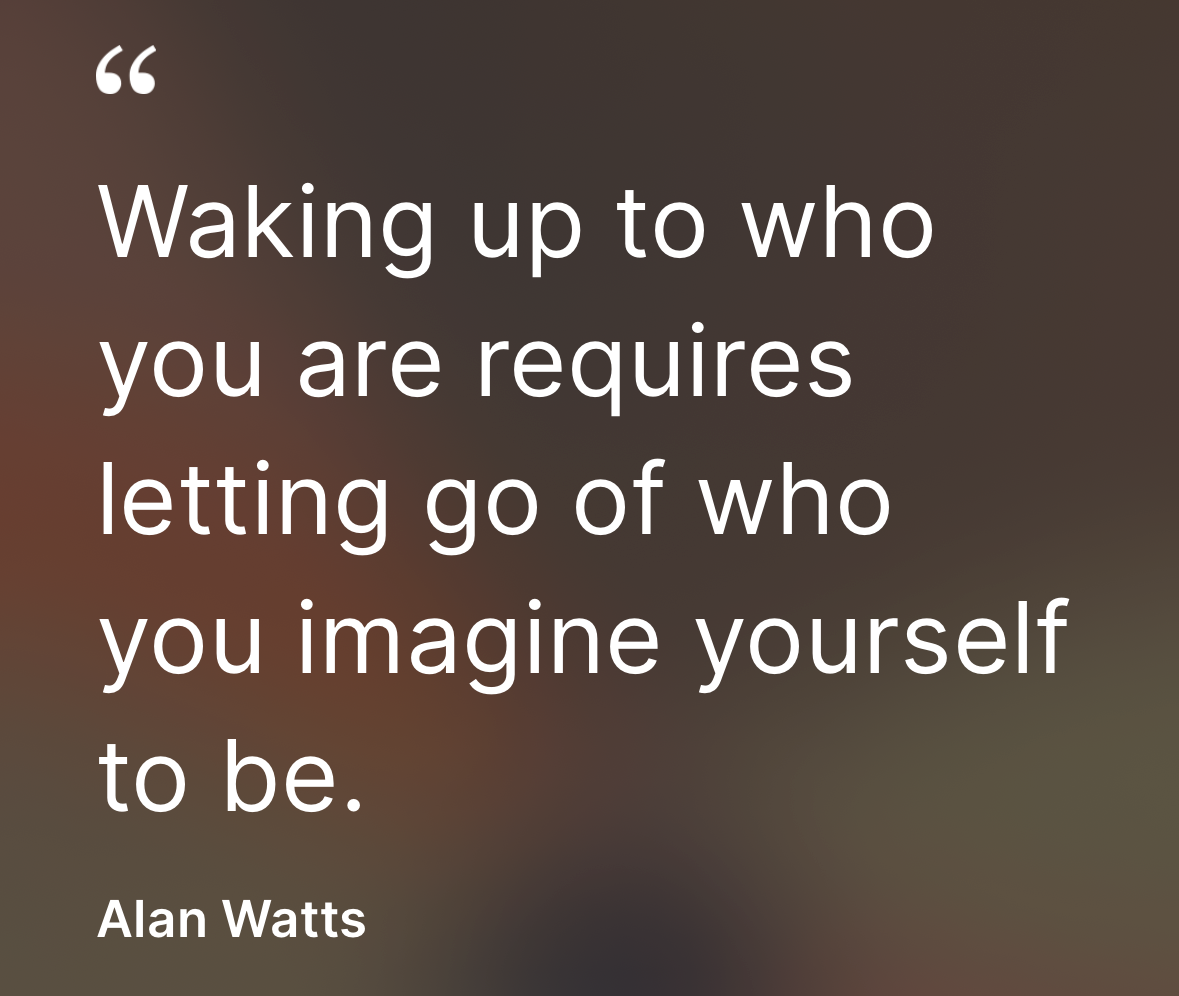Sense of self



Summary: "I" versus "Me" philosophical differences
Arthur C. Brooks contrasts "I" (the observing self) with "me" (the self defined by others' perceptions), arguing that most people are "all me and no I," and that cultivating the observing "I" (Atman) lets you live less attached to social comparison and more freely.
Why it matters
- Being dominated by
Making Sense with Sam Harris • #291 — Where Is Happiness?
.starred
The Ego, Jung tells us, is that part of the psyche that we think of as "I." Our conscious intelligence. Our everyday brain that thinks, plans and runs the show of our day-to-day life.
Steven Pressfield • The War of Art
Colloquially, we often speak of ourselves as if we were split in two: “I couldn’t make myself get out of bed this morning,” “I had to force myself to be calm,” “I had to hold my tongue.”
Edward Slingerland • Trying Not to Try: Ancient China, Modern Science, and the Power of Spontaneity
Duality
Self and No-Self
The "you" that's real doesn't have experience; it is experience.
Conversation between Kieran Setiya & Sam Harris
https://dynamic.wakingup.com/clip/CL229BB-C54AA7?code=SCA6C8E6E
Self & Other
Study the connection between your sense of self and your relationship to others.
This very first cheap trick creates the core of all future mental models, a model of ourselves, a self-archetype. The first self-archetype is merely the subset of James’ blooming, buzzing confusion that we classify into our mind’s “I.” It is extraordinarily hard to redraw this boundary later in life.